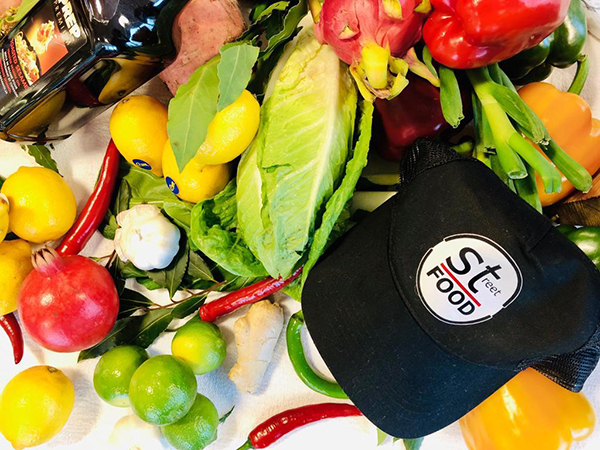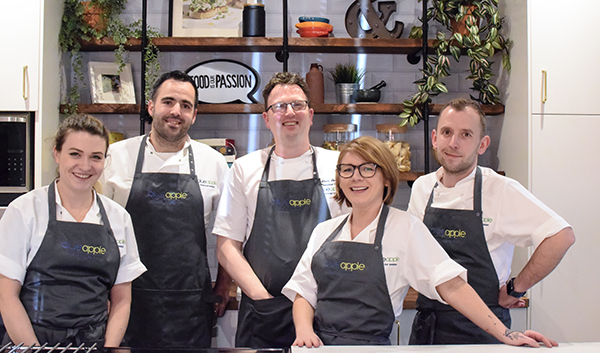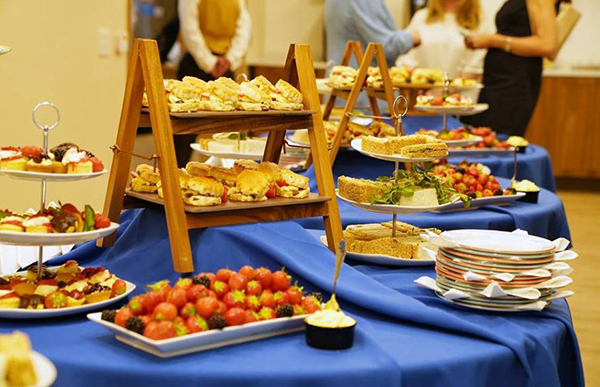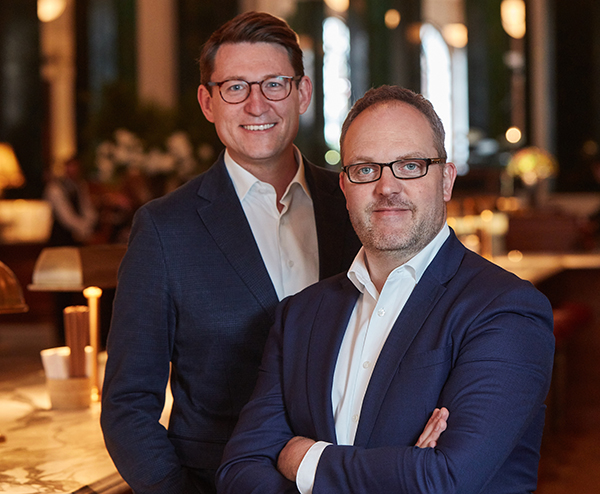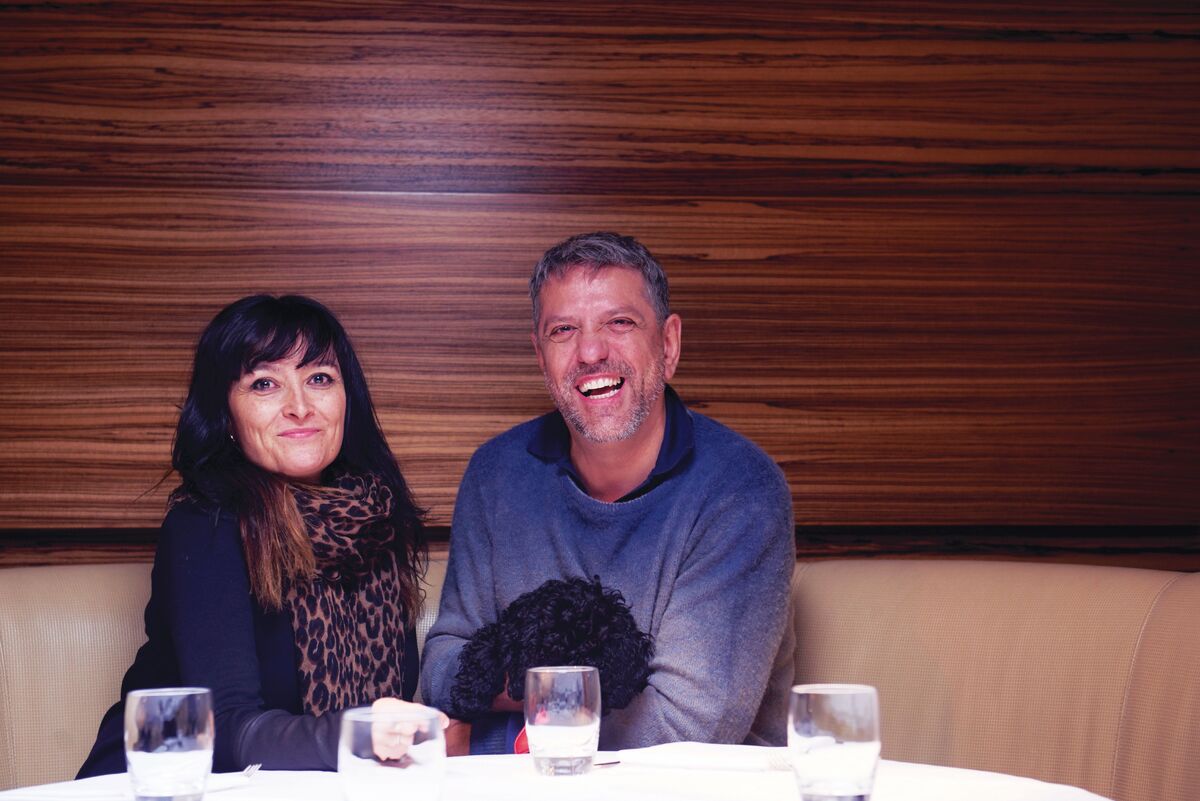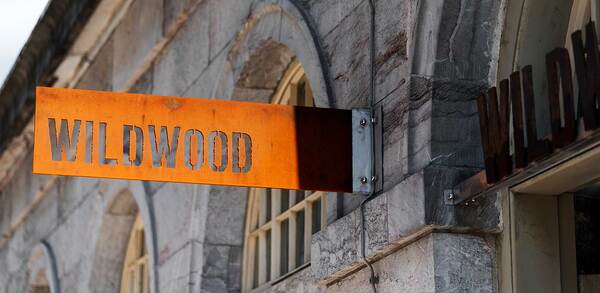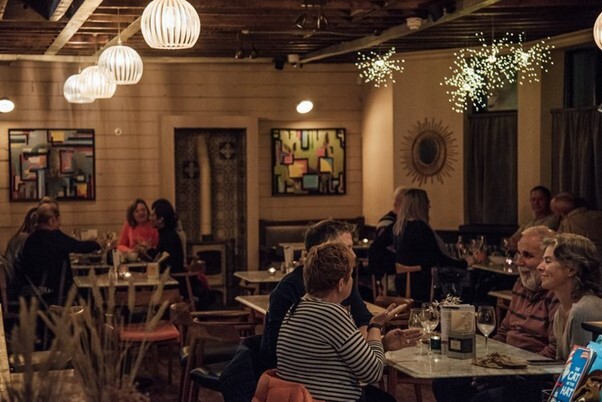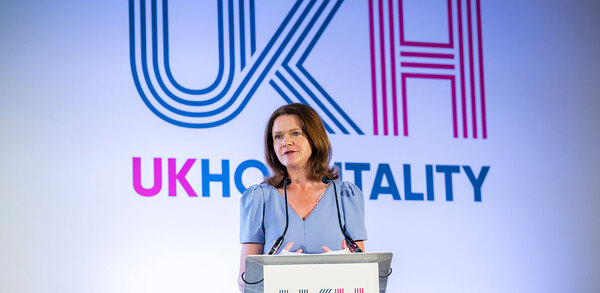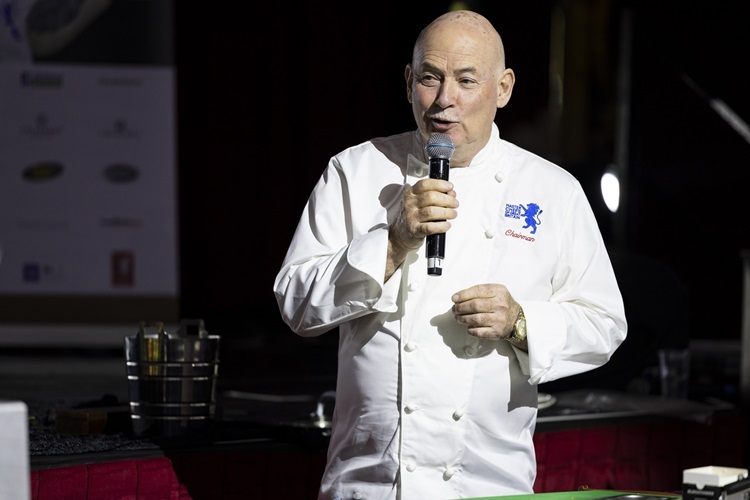Small but mighty: the boutique caterers taking on the heavyweights
A boutique contract catering business may be a rare beast in a market dominated by a handful of heavyweights, but their personalised service and nimble response to market fluctuations mean they have carved a lucrative niche. Janie Manzoori-Stamford reports
Worth more than £5b in annual turnover, the UK foodservice industry remains ripe with commercial opportunity in the face of uncertain times.
It is a sector dominated by big businesses, thanks to a prolonged period of merger and acquisition (M&A) activity that has seen the market massively consolidated. Boutique independents and new operators are few and far between these days, either swallowed up by the big catering groups or challenged by the growing number of obstacles to entry, such as client demand for investment in facilities and the cost of compliance to legislation.
Add to that the ongoing blurring of the boundaries of consumer trends between on-site catering operations and the high street and it is clear that competition is intense. "Where companies relocate into new buildings, there is a complete review on space allocated to catering and more often a creation of community-stylised areas with a high street look and feel to foodservice design," explains Alison Frith, managing director of business and industry (B&I) caterer Artizian.
"Today's contract catering industry is a churn market where growth is derived primarily from acquisition of competitors and margins are exceptionally low, hence the focus by many on volume to achieve sustainable profit."
The market is living in "unprecedented times", she adds, thanks in particular to the uncertainty of Brexit and the fear of soaring food prices. Paul Robottom, founder-director of care caterer Signature Dining, agrees, adding that rising input costs and skills shortages will continue to be problems for operators.
"Margins remain pressured by restrictions on client budgets and there is mounting price competition between caterers," he says. "Our market in particular is influenced significantly by government policy and funding. When will the austerity end?"
The good news is that foodservice is a remarkably resilient sector, with the enterprising spirit of the smaller independents playing a key role, as Simon Houston, director of new B&I caterer Houston & Hawkes, explains: "The sector has benefitted from having boutique operators within it for decades. The market has never stood still, meaning innovation and entrepreneurialism have been cornerstones of our industry's success."
So with the consolidated sector dominated by a handful of heavyweight groups with deep pockets, what does this mean for the shrinking number of boutique businesses? What are they able to bring to the party that their larger rivals cannot? And is there a future for them as independents or are they likely to be
swallowed up by the big boys? The Caterer spoke to four boutique operators to find out.
Acquisition is not on the radar for agile Artizian Name Artizian Catering Services
Launched 1996
Sector B&I
Areas of operation London and the south east
Number of clients/sites 23
Number of employees 209
Annual turnover £12m
Five-year growth to date 12.5%
Forecast growth 50% over next five years
"We are part of the same revolution that has hit the high street. We have never seen as much interest in the standalone bakery or coffee roaster, where well-travelled, discerning clientele are willing to pay the price, but are looking for that ‘something different'," says Alison Frith, managing director of Artizian Catering Services.
So what opportunity does that represent for boutique foodservice operators and can the catering behemoths compete on those terms? According to Frith, it's not that simple. "Despite the existence of their acquired sub-brands, the big boys that have long dominated the market are understanding the difficulty in catering for a different-sized contract. Clients are articulating that it is not solely down to price," she explains.
"Finding a ‘client fit' has become one of the sine qua non criteria from the very early stages of any tender process, allowing independent caterers to compete in the correct category with a fair advantage."
Artizian has seen its business enquiries change as a result. Prospective clients are approaching in the first instance simply because it is independent and boutique and then often asking for an entirely bespoke foodservice offer.
"This is where we are being recognised for our flexible creativity," says Frith. "Clients are definitely more interested in our thought process to achieve optimal results." One of the biggest rewards of a consolidated market to independents like Artizian is they are allowed to simply be themselves. They are allowed to be quirky. In fact, being quirky is actively sought out, says Frith.
"We're able to show the benefits of an agile structure that enables tailored solutions, and we deliver personalised, exceptional and ‘beyond expectation' customer service, leading to contract extensions," she adds.
But while Artizian is embracing the opportunities, a consolidating catering market is not without its challenges. Contracts that are on the cusp of big mergers find timelines are often extended or providers are selected on an interim basis, which, while understandable, affects the sales pipeline. And Frith says that clients often misjudge the level of flexibility with which smaller caterers operate.
"Clients are often tied down to rigid templates and processes from bigger catering companies, but while we are more flexible, it is sometimes forgotten that we too need procedures to operate efficiently," she says.
With 23 years of trading under its belt, Artizian has been privy to its fair share of acquisition interest, says Frith, but it is unlikely to take up an offer any time soon. "We do receive approaches, but acquisition is not on our radar.
We may think differently in years to come, but at present, health, opportunities, career progression and happiness are all on the 100% scale. Why change something that works so well?"
Blue Apple bags a bigger slice of the pie
Name Blue Apple Contract Catering
Launched 1998
Sector B&I
Areas of operation South east, London, Home Counties, the Midlands
Number of clients/sites 70-plus
Number of employees 400-plus
Annual turnover £16.5m
Five-year growth to date 11% per annum
Forecast growth 11% per annum over the next five years
"We have found that consolidation in the market has created ‘white space' for smaller companies to move into," says Ruston Toms, who co-founded Blue Apple with business partner Brian Allanson in 1998.
"When small companies form larger groups, they can easily lose focus on client and employee relationships, as well as focus on their brands and strengths, so the whole culture is weakened. Clients feel disillusioned that the caterer they bought into is no longer there."
And while consolidation also leads to less choice in the marketplace for clients, boutique operators are able to benefit from an increase in tender opportunities, less competition from similar-sized rivals and the chance to offer something their larger counterparts cannot.
Blue Apple specialises in offering B&I catering to a sector that Toms says is placing growing emphasis on the importance of staff welfare. In addition to introducing mental health officers and health and wellbeing programmes, B&I clients are recognising the value of a high-quality and healthy foodservice offer in the workplace.
"We see employers wanting to apply greater focus and investment on staff feeding as part of their corporate responsibility strategy. The future looks bright for foodservice businesses that recognise this and are able to partner with B&I clients on their wellbeing journey.
"There is the possibility of disruptors from more âdelivered in' offers, though we believe the viability of this model is only possible in larger cities. But the requirement for freshly prepared, nutritious food served with a smile will always be in demand."
Toms declines to answer the question of whether Blue Apple might consider an opportunity to be acquired, but he is not only open to the idea of new players in
the sector, he welcomes it.
"The barriers now are greater than when Blue Apple was founded more than 20 years ago, but we don't think this will stop people from trying. Competition is healthy and keeps people on their toes!"
Specialist expertise on the menu at Signature Dining
Name Signature Dining
Launched 2016
Sector Traditional care catering
Areas of operation Birmingham, Berkshire, Buckinghamshire, Essex, Greater London, Hampshire, Oxfordshire, Surrey
Number of clients/sites Nine clients and 13 sites
Number of employees 121
Annual turnover £3.1m
Five-year growth to date £3.1m since launch
Forecast growth £2m annual growth
Signature Dining launched in 2016 as a result of consolidation in the market. Co-founders Paul Robottom and David Penlington were previously managing director and sales director respectively at care catering company Caterplus, but when its parent company Waterfall Catering Group was bought by Elior, the pair realised they had no desire "to work for the big boys".
Instead, they decided to launch a brand new business focused solely on care catering. So compelling was their proposition that Genuine Dining Group managing director Chris Mitchell jumped at the chance to launch Signature Dining within the Luke Johnson-backed business.
"There has been a significant swing over recent years in the care sector. Many of the established independent caterers have sold out to either facilities management companies or the multinational PLCs," says Robottom. "This has created a space for new start-up businesses that are able to offer a truly personal and bespoke catering service.
"Many clients become unsettled by the change in ownership of their catering provider and almost unwittingly start comparing âbefore' and âafter', looking for kinks in the service they receive. Takeovers can also cause issues with invoicing and queries on ingredient pricing, which very often triggers clients to look at alternatives."
Around 40% of the caterer's business has been won from clients dissatisfied with âlarge company syndrome', says Penlington.
"Initially it's difficult [for a boutique caterer to launch] with no references and the first few clients have to take a leap of faith," he says. "But our start-up growth is testament to the opportunities created by market consolidation."
Other challenges include being able to compete on price, structure and investment, as well as being able to absorb risk-averse or commercial contracts. But targeting a niche market has created opportunities.
"We solely operate in the traditional care or nursing home sector and we have developed an operations toolkit that provides our clients with added value," says Robottom. "We miss out on potential non-core business, such as extra care and commercial retirement villages, but our ability to specialise means we have come to be known as a market leader."
Does the company have any plans to sell up and ship out any time soon? Penlington says no: "We're a start-up with a medium- to long-term business plan. We would not consider acquisition interest for at least the next five to 10 years."
Houston & Hawkes: the new kids on the block
Name Houston & Hawkes
Launched 2019
Sector B&I
Areas of operation London and south east
Houston & Hawkes is the first brand new B&I caterer of note in around a decade. Launched this month by industry stalwarts Simon Houston and Dave Hawkes - previously sales director and regional managing director at Bartlett Mitchell and BaxterStorey respectively - the new caterer seeks to offer prospective clients a focused and bespoke approach along with more than 40 years' collective experience.
According to Houston, the newness of the operation is the first factor that will enable it to stand out from the crowd.
"We anticipate many upcoming changes, from allergy and nutritional information through to advances in technology and customers' eating habits. Change is a positive thing and without doubt, caterers will be challenged to rethink and redesign their approach in meeting the demands of our clients and customers," he explains.
"We have no legacy systems and processes to distract us, so we have designed Houston & Hawkes with the future in mind and with our clients at its heart. And we have no external investment, which means we are in total control over our decision making."
But what about the oft-talked about barriers to entry? How can a new entrant to the sector deliver the infrastructure necessary to satisfy the needs of today's clients? Houston & Hawkes believes it can do this through carefully considered strategic partnerships with specialists in their field that are designed to ensure every client's demands and desires are met. This will enable the caterer to offer a comprehensive, sophisticated and agile catering operation from the get-go while Houston and Hawkes concentrate on building the business according to their founding principles.
"There have been a small handful of companies that Dave and I have admired throughout our careers. Those focused on creating rock-solid relationships with their clients, environments of openness and fun within their team have always been successful. Our vision is to do just that," says Houston.
"We want to focus on what we're good at and to share our journey with hard-working, passionate and determined colleagues. London and the south east is where our hearts are at, and the B&I sector is what we know. We are at the beginning of a hugely exciting journey in an industry that we both love."
"While clients have long questioned the longevity and ownership of independent catering companies, in fear of a mid-contract acquisition, we are in a unique position to offer clients long-term security," says Houston.
"Dave and I have a long-term vision for our business and we strongly believe the sector will benefit from the rekindling of the independent wave of caterers."




